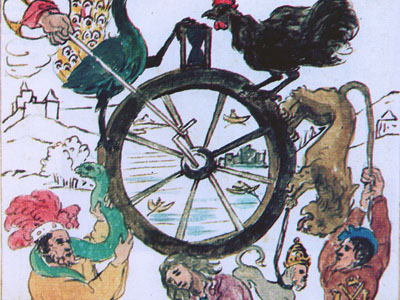 A sign that you’re a good satirist is that you can satirize something that hasn’t happened yet.
A sign that you’re a good satirist is that you can satirize something that hasn’t happened yet.
Jonathan Swift’s A Modest Proposal does lots of legwork these days, from gaming to contemporary social movements. The sentiments are so universal and timeless that they can be fitted over almost anything.
But what’s even more striking is when a satirist successfully anticipates a person. Eerie, too, especially when you see someone you know walking around in the pages of a book written a hundred years ago. Some say that Marquis de Sade has written into his books everyone you’ve ever met in your life. Others attribute this feat to Mark Twain. Neither Sade or Twain personally give me that feeling, but someone who does is John Kennedy Toole in his book The Confederacy of Dunces.
This book, written in 1969, contains a character called Ignacius J Reilly. He (as has been noted by others) is almost a perfect pastiche of 21st century blogger Mencius Moldbug. They’re both “reactionaries”, motivated by what they see as the decline of the modern world (though Moldbug thinks we need more conservatism, while Ignacius thinks we need more geometry). They’re both very long winded, with a high opinion of their own intellects. Both appear to be either far behind the times, or far ahead of them. They even share a liking for Boëthius.
The book also contains a female character called Myrna Minkoff, who is a parody of Jewish feminism. I’m not as impressed by this. Toole was a literature teacher at a college in New York, and one assumes the studentry furnished him with a lot of material when creating Minkoff.
CS Lewis’s “Planet” trilogy also comes to mind. There’s a “jerk atheist” figure (MacPhee) who comes across as contemporary. And it’s no secret that Weston was drawn from famed geneticist JBS Haldane, who embodied what Lewis saw as the darkest chapters of the science-driven future (paranthetically, the real JBS Haldane could apparently talk while inhaling air, allowing him to continuously monologue without pause for breath. A shame Lewis didn’t give his fictional Weston that trait, or he would have been the most loathed villain in all of literature, bar none.) Richard Devine could be likened to your favourite sociopathic hedge fund manager.
Obviously, there’s a host of attempted self-made prophecies, where people explicitly model themselves on someone from a book (like John Galt, or Jesus Christ), usually with unsatisfactory results. Sometimes people try to will entire social edifices into existence from novels – such as Palahniuk’s Fight Clubs, and John Norman’s sadomasochism-based Gor lifestyle.
True things often end up as lies in the pages of a book. But if you look closely, it’s not hard to find the reverse – a fictional story that people in real life are turning into the truth.
No Comments »
Comments are moderated and may take up to 24 hours to appear.
No comments yet.
